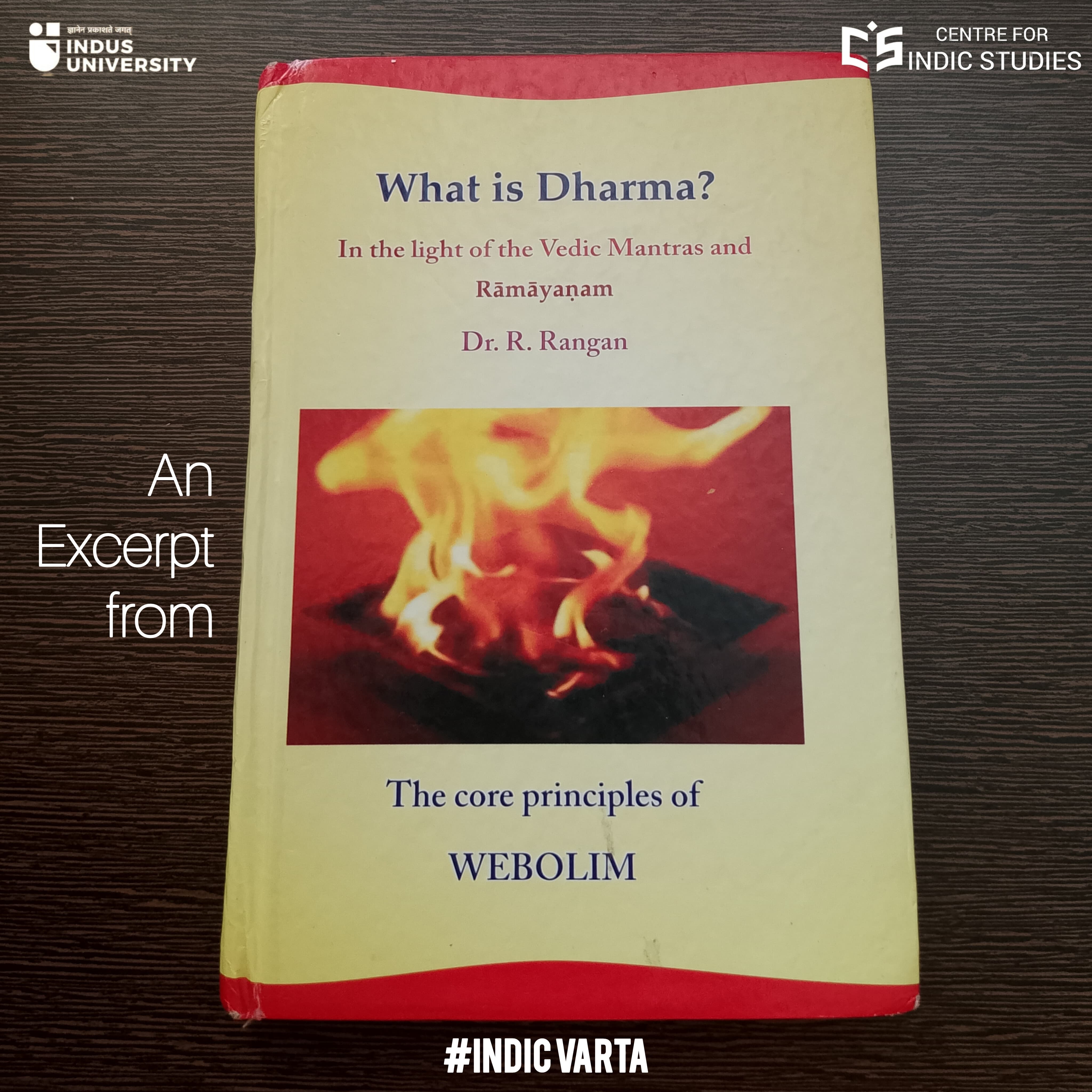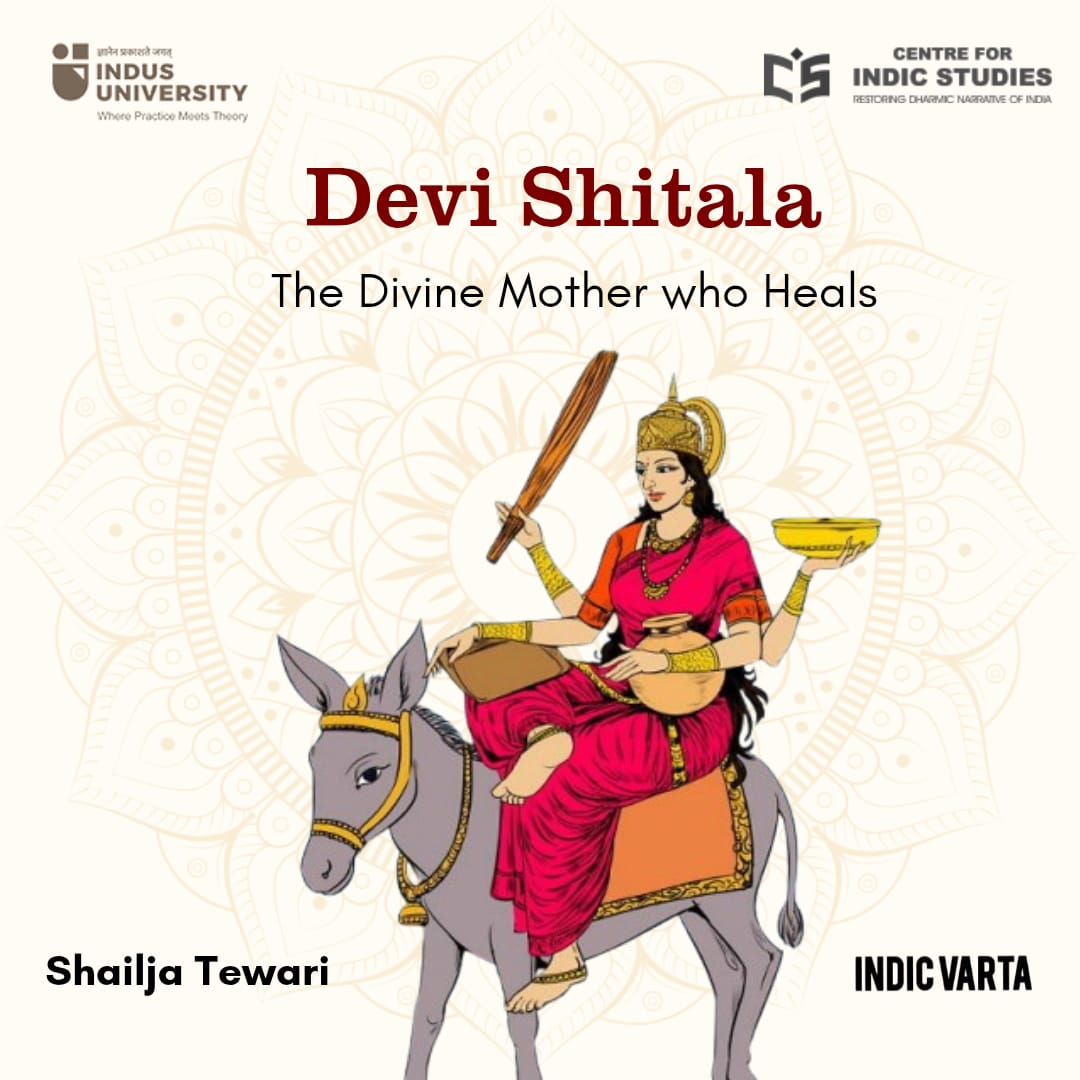- Visitor:77
- Published on: 2024-12-05 02:29 pm
What is Dharma? An Excerpt from Dr. R Rangan's Book
Dharma is like the electricity. Norms are just wires carrying the electricity called Dharma. Wires have their significance only when electricity exists within them.

What is Dharma? The answer seems to be simple. Dharma is nothing but the set of values like non-violence, charity, kindness to living beings, gratitude, obedience, devotion, tolerance, and so on. But is this explanation sufficient? No doubt that the above mentioned values are Dhārmic deeds. But in what context are they so? Of course, they are not so always.
Can Dharma mean the non-violence towards the evil forces that harm the innocent beings or the society in general? If donating is Dharma, then can donating money to the terrorists literally be Dharma? If kindness is Dharma, can being extremely kind to the true convicts who commit the highest blunders and releasing them without giving any punishment, as the result of kindness be Dharma?
If gratitude is Dharma, just for the sake of gratitude Karṇa supported Duryodhana’s deed of plundering the wealth of innocent and Kumbhakarṇa supported Rāvaṇa’s deed of abducting other man’s wife. For the same reasons, Vidura left Duryodhana and Vibhīṣaṇa left Rāvaṇa. Which is Dharma?
If obedience is Dharma, can obeying the father who instructs his son to gamble, be Dharma? If the devotion is Dharma, is the devotion of Nadir Shah or Aurangazeb, (who massacred many innocent beings believing the inquisition to be instruction of God) Dharma? If tolerance is Dharma, can tolerating one’s own wife or sister or mother or even any woman getting insulted forcibily by some brutes be Dharma?
Dharma is also identified with some customs and rituals. Dharma is poorly translated as religion by many ‘scholars’. No doubt that the customs, rituals, and even religions may contain Dharma. But are they, the Dharma?
The women were compelled to fall into fire after the death of their husbands in few parts of India, in eighteenth century. Later the Maratta rulers legally stopped this custom. Can this custom of compulsion to fall in pyre be called Dharma?
Some people identify Dharma with constitution or law. Many times law may contain Dharma. Sometimes it may not. Why the freedom fighters practiced civil disobedience, when the British colonized India? Were the freedom fighters not Dhārmic?
When we contemplate on these things, we understand that mere fixed norms or even customs are not exact Dharma. Dharma is like the electricity. Norms are just wires carrying the electricity called Dharma. Wires have their significance only when electricity exists within them. Otherwise they are powerless. In the same way the norms are significant when they carry Dharma within them. Norms without Dharma are useless. The core Dharma behind the norms has to be realized.
Seeing the difficulty in understanding Dharma, as it is, some philosophers say that Dharma is just a notion. But Śrī Madhva refutes this in his Gītābhāṣya. Dharma means righteousness. Any philosopher is taken to be a philosopher by the people, because of the belief that he/she is going to indicate what is right (Dharma)? But if a philosopher considers righteousness as just a notion and therefore not real, then he/she cannot be called as a philosopher at all, because the very definition of a philosopher is that the one who indicates what is right?
Acceptance of the existence of righteousness as it is, suggests the existence of its Pramāṇam, or instrument of knowledge, because anything’s existence is determined only through Pramāṇam.
Any individual’s independent notion cannot be the perfect Pramāṇam for Dharma, because, Dharma is not just a notion. There has to be an instrument of knowledge which is beyond individual notion, to indicate Dharma or righteousness as it is. This is Śrī Madhva’s view.
The Vedas are the greatest instruments of knowledge to understand the core Dharma or righteousness as it is.
न ही धर्मादिसिद्धिः स्यान्नित्यवाक्यं विना क्वचित्।
na hi dharmādisiddhiḥ syānnityavakyaṁ vinā kvacit
“Dharma cannot be determined perfectly without (accepting the existence of) the Eternal World (of Vedas).”
- 38 min read
- 4
- 0










